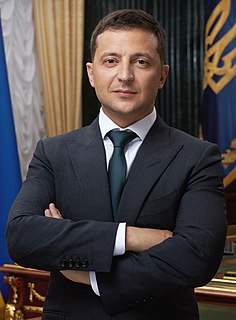A Quote by Mahmoud Ahmadinejad
We had principles in mathematics that were granted to be absolute in mathematics for over 800 years, but new science has gotten rid of those absolutism, gotten forward other different logics of looking at mathematics, and sort of turned the way we look at it as a science altogether after 800 years.
Related Quotes
Mathematics has two faces: it is the rigorous science of Euclid, but it is also something else. Mathematics presented in the Euclidean way appears as a systematic, deductive science; but mathematics in the making appears as an experimental, inductive science. Both aspects are as old as the science of mathematics itself.
If you ask ... the man in the street ... the human significance of mathematics, the answer of the world will be, that mathematics has given mankind a metrical and computatory art essential to the effective conduct of daily life, that mathematics admits of countless applications in engineering and the natural sciences, and finally that mathematics is a most excellent instrumentality for giving mental discipline... [A mathematician will add] that mathematics is the exact science, the science of exact thought or of rigorous thinking.
Srinivasa Ramanujan was the strangest man in all of mathematics, probably in the entire history of science. He has been compared to a bursting supernova, illuminating the darkest, most profound corners of mathematics, before being tragically struck down by tuberculosis at the age of 33, like Riemann before him. Working in total isolation from the main currents of his field, he was able to rederive 100 years' worth of Western mathematics on his own. The tragedy of his life is that much of his work was wasted rediscovering known mathematics.
...mathematics is distinguished from all other sciences except only ethics, in standing in no need of ethics. Every other science, even logic, especially in its early stages, is in danger of evaporating into airy nothingness, degenerating, as the Germans say, into an arachnoid film, spun from the stuff that dreams are made of. There is no such danger for pure mathematics; for that is precisely what mathematics ought to be.
What is mathematics? Ask this question of person chosen at random, and you are likely to receive the answer "Mathematics is the study of number." With a bit of prodding as to what kind of study they mean, you may be able to induce them to come up with the description "the science of numbers." But that is about as far as you will get. And with that you will have obtained a description of mathematics that ceased to be accurate some two and a half thousand years ago!
It has been a fortunate fact in the modern history of physical science that the scientist constructing a new theoretical system has nearly always found that the mathematics. . . required. . . had already been worked out by pure mathematicians for their own amusement. . . . The moral for statesmen would seem to be that, for proper scientific "planning", pure mathematics should be endowed fifty years ahead of scientists.
The broader the chess player you are, the easier it is to be competitive, and the same seems to be true of mathematics - if you can find links between different branches of mathematics, it can help you resolve problems. In both mathematics and chess, you study existing theory and use that to go forward.
Roger Bacon, a disciple of the Arabs, also insisted on the primary necessity of Mathematics, without which no other science can be known; yet by Mathematics it is clear that he meant something very different from what we mean, including under that head even dancing, singing, gesticulation, and performance on musical instruments.










































